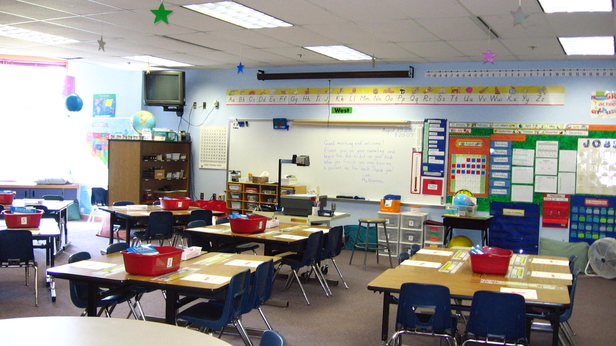
January 7, 2015
by Christian D’Andrea
MacIver Institute Education Policy Analyst
Schools that earn the equivalent of “D” or “F” grades on Wisconsin’s School Report Cards could be tied to big changes in the near future. These chronically underperforming schools would be subject to major intervention efforts and, barring a turnaround, could see public schools converted to independent charters and charter/voucher schools lose public funding entirely.
Assembly Speaker Robin Vos (R-Rochester) made claims in 2014 that this legislation would be the first bill his chamber took up. That prediction came true when Rep. Jeremy Thiesfeldt (R-Fond du Lac) unveiled his school and school district accountability program on Wednesday.
The proposed legislation would force all schools that record “D” or “F” grades after three years of monitoring to develop and then implement an improvement plan aimed at raising those marks. These plans will be reviewed and approved by a newly formed Academic Review Board (ARB) that will monitor their progress. If a school fails to meet the requirements of their improvement plan, they will face significant sanctions:
- Traditional public schools and instrumentality charter schools that do not show signs of improvement stand the risk of being converted into independent charter schools. The ARB has the authority to compel DPI to publish a request for proposals from the public to gauge the best path for redeeming the school.
- Independent charter schools will have their public funding revoked.
- Voucher schools will be withdrawn from the state’s school choice program. They will not be allowed to reapply for entry for four years.
The proposed accountability system would also assign A-F letter grades to schools. Currently, institutions are given a numerical score (0-100) and a label that ranges from “Fails to Meet Expectations” to “Significantly Exceeds Expectations.” These schools will also have the option to select their own standardized testing protocol from a list of DPI-approved vendors. The state will contract with the University of Wisconsin’s Value-Added Research Center (VARC) to ensure that all tests sync up to create a comprehensive and fair evaluation for every publicly funded school in the state.
Legislators in the Assembly have expedited the process to bring a school accountability law to the forefront of the 2015 Legislative Session. Its Senate equivalent is expected to be unveiled in the coming weeks, though there will be a few key differences between the two bills. The biggest change deals with how those chronically underperforming schools are dealt with; while the Assembly version creates specific designations and consequences for these institutions, Wisconsin’s state senators have been working to create an accountability board that would handle all specific sanctions and rewards for publicly funded institutions based on their School Report Card grades.
Senator Paul Farrow (R-Pewaukee) is leading up the Senate’s charge to bring greater accountability.
The Assembly’s accountability bill will place definite consequences on schools that fail to educate students to the Wisconsin standard. However, there are still issues that could leave classrooms, teachers, parents, and students in the lurch. Requiring three years of data and four years to implement a turnaround program means that students could be stuck in a chronically bad school for seven years – long enough for children to matriculate through their elementary schools and into another potentially underperforming institution.
While the call to rebuild failing traditional schools into independent charters is meant to capitalize on the consistently strong performance of the 2R charters in Milwaukee, just calling for public proposals fails to guarantee a better school for the future. Even strong ideas can be shot down or altered by an ARB that currently has no shape.
Still, this is a strong first step after accountability has fallen prey to internal debate in the past two years. Wisconsin has discussed school accountability since 2011 with no real progress, allowing failing schools to struggle with little hope for the future. Passing a bill that attaches real consequences – and real ideas for rebirth – to those schools would be a major benefit not just at the State Capitol, but in classrooms throughout the state.